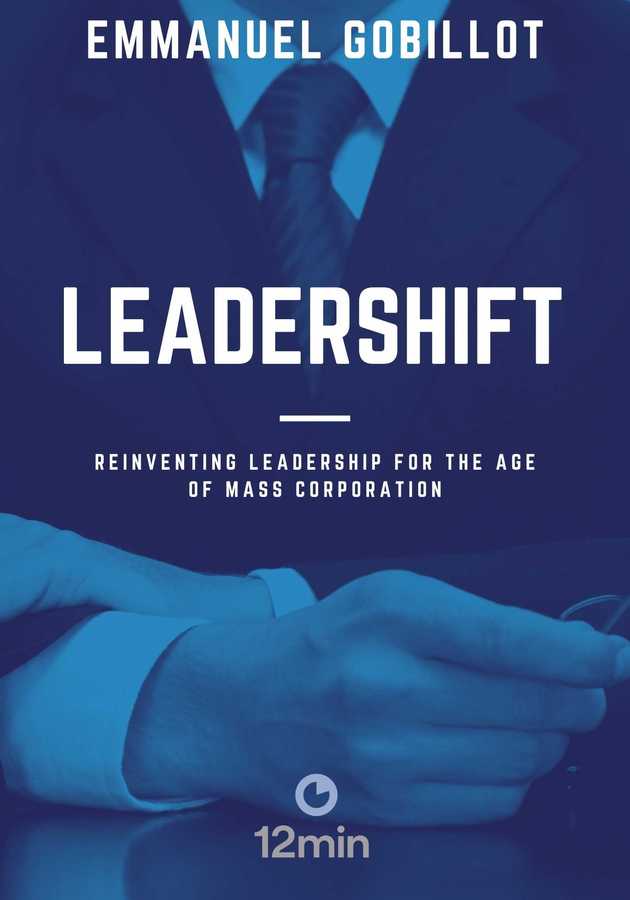Independently of your political leaning, you may have participated – or at least witnessed – several pub discussions on the nature of modern capitalism and the best way to steer it toward a better and more humane society. So, in one way or another, you’re already familiar with the prevailing atmosphere: things heat up after only a few minutes, anger and resentment build-up to the point of spilling over in the form of harsh words and indirect insults, and, eventually, consistent with Godwin's law, a few names start to get thrown around – Hitler, Trump, Stalin, Marx, Thatcher, Reagan, quite probably in that order.
In any case, if you are merely a bystander, oftentimes you can do nothing but remain bewildered by the sheer palpability of the echo chambers (or filter bubbles, as they prefer to call them now) surrounding the debaters, and, before too long, you start wondering whether people are capable of communicating anymore, let alone reaching any kind of conclusion.
Paul Collier – a world-renowned British development economist, professor of Economics and Public Policy in the Blavatnik School of Government, and the director of the International Growth Centre – has, for many decades now, willfully accepted this position of a spectator, so that he can, in the tranquility of his thoughts, carefully study and check the unheard arguments of both sides against his esteemed experience, exceptional insight, and encyclopedic knowledge.
“The Future of Capitalism” is the last product to come out of this one-man research laboratory, and, like almost all others before, it is an alloy of ethically-sound call for social democracy and also a dispassionately nuanced defense of pragmatic postwar capitalism. Read ahead to find out all about his reasons and arguments in our summary.
The new anxieties
Contrary to what Marxist scholars believe – at least according to Collier – modern capitalism “has the potential to lift us all to unprecedented prosperity.” Unfortunately, “it is morally bankrupt and on track for tragedy,” courtesy of either its recent radicalization in the direction of laissez-faire free market economy or because of its reorientation toward sociopolitical paternalism guided by the state. “Capitalism last worked well between 1945 and 1970,” writes Collier and explains, in detail, why.
You see, after World War II (wryly but quite accurately described by Paul Krugman as “the largest economic stimulus package in history”), utterly taken aback by the mass ruin of lives brought upon humanity by the extreme ideologies of fascism and Marxism, states and societies suddenly found a long-lost sense of purpose.
Fully aware that the war was won due to allied effort, people suddenly had no more problems welcoming ideals such as shared national identities, solidarity, and social democracy. For example, even though it meant 80% income taxes for the rich, there was barely any dissent for the New Deal legislation in the United States, and the free-for-all National Health Service in the United Kingdom was both devised and executed by a collaboration between Conservative and Labor forces.
Just three decades later, these ethics of communitarianism brought about a never-before achieved economic and political stability in the West for the majority of the people. Unfortunately, precisely because of this, it began to crumble apart soon after, as a growing number of highly educated and well-paid individuals started disregarding their debts to society, thus repaving the two-forked road toward populism or totalitarianism via radical individualism. In short, once you start caring for yourself only, someone else is left behind. Shortly, the rift becomes insurmountable, and both sides are bound to end up at the bottom of the crevice.
Unfortunately, we are currently looking at just one step removed from the described juncture, in a barely manageable society that should be written more properly in the plural. After all, both ideologically and morally, both explicitly and covertly, the less educated are – almost by force of necessity – pitted against the highly skilled elite, and parallels can be traced in the rural communities against the thriving cities, the renters against the owners, the coast against the heartlands, London against the north of England. And there aren’t many ways out.
Restoring ethics
The radical individualism of the few from the elite has resulted in a political fight for the marginalized majority. In more precise terms, it has resulted both in Trump’s populism and in the restructuring of the Democratic Party in the U.S. and the Labor Party in the U.K. around ostensibly Marxist policies. If we want to avoid the risk of cataclysmic scenarios, we need to immediately find our way back to the postwar ethics of communitarianism in all of our interhuman relationships.
The ethical state
What other people might term “the problem with capitalism,” for Collier is actually “the problem with ideologies.” In his opinion, the free-market society is being eroded around the world by dogmas and rigid belief systems, not by unhealthy competition. On the one side, we have the left-leaning ideologies ready to abolish the free market altogether using regulations of all but military nature; on the other, we have more and more politicians like Trump who seem to know things better even than the facts and statistical data. Either way, we’re devolving on a form of top-down paternalism rooted in semantically delimited doctrines that often go against our human nature.
What we need, Collier argues, is “a rejection of ideology” and “a willingness to accept our diverse and instinctive moral values, and the pragmatic trade-offs implied by that diversity.” More poetically, what we need now, more than ever, is a paradigm shift – from the confident paternalism of ideology to the tender “social maternalism” of pragmatic transactions, as the author calls it.
The ethical firm
Easier said than done, right? It’s one thing to say that the capitalist state of the future should be more ethical, but a completely different thing to explain how a modern yacht-owning, dollar-a-second CEO should suddenly express interest in reforming their company to earn less than currently is and be more responsible for the fate of the company's employees. Can you imagine if such CEO was profoundly affected by Milton Friedman’s 1970s economic nostrum that “the sole purpose of a firm is to make profits” and by Gordon Gekko’s 1980s catchphrase that “greed is good?” How would anyone explain that?
Surprisingly enough, up until the 1980s, many businesses in the United Kingdom functioned in precisely this matter by design, being collectively owned by their employees rather than their shareholders. Some, such as the John Lewis Partnership (JLP) still do and are extremely successful and respected, not least because all of its employees receive a substantial share of profits as an annual bonus (and yes, “the same percentage is paid to a shop-floor worker as to the CEO”). The only reason why there aren’t more companies such as JLP – other than the radical individualism of the 1980s – was a 1986 change in the law that instigated a nationwide process known as demutualization, during which ownership was decisively torn away from workers.
Be that as it may, JLP is a perfect example that communitarian companies can excel in a capitalist society. To see more of them, we need to introduce policies that would prevent global companies – such as Amazon and Google – from finding taxation loopholes, while obligating the incorporation of public interests in their boards. Impossible? Well, there’s already a precedent in the U.S. through the new category of Public Interest Companies, best described as “companies with dual mandate”: commercial and public interest, both of which the board must take into account.
The ethical family
At first glance, families might not have a lot to do with economic stability and, therefore, they are expected to be treated only marginally in any discussion of the resurgence of ethical capitalism. However, to the author, “the family is the most potent of all the entities that lift us beyond the individual.” Arguably, “the reciprocal obligations,” which left married spouses bonded to life-long marriages after the war, made all the difference between the ethical capitalism of postwar years and the greedy capitalism of today.
“Despite the powerful and understandable taboo on stigmatizing one-parent families,” Collier writes boldly and somewhat controversially, “social science has now demonstrated rigorously, and causally, that children do better if they are reared from birth to adulthood by two parents from whom they are genetically descended.”
Unfortunately, it is a class thing and a growing issue for the underprivileged. Contrary to popular opinion, extramarital births among graduated white mothers are just as rare today as they were in 1965: a mere 5%. Expectedly, since only 11% of the girls who went on to become graduates by 2000 had underage sex before. Divorce, after an initial surge, has declined steeply as well among the educated, its incidence currently standing at 1 in 6 marriages.
It’s the other way around for the poor and less educated, among whom the rates for both underage sex and divorce are double that of the highly educated: 1 in 5 teenage girls have underage sex, and 1 in 3 marriages end in split-up. The connection between all these facts and figures and the wellbeing of society is made rather obvious by the following data: 2 out of 3 children coming from families in the lower half of total education have been raised either by a single parent or no parent at all!
Social maternalism must change that by devising policies aimed at fixing broken families and helping newly wedded couples stay together. One of these – both demonstrated to work and preferred by Collier – is tax-credit bonuses for parents living in the same house.
The ethical world
Soon after World War II, in tune with the all-pervading spirit of solidarity (even if only in the face of fear), world leaders transformed the need for mutual collaboration into something much more tangible by founding organizations such as NATO, the Warsaw Pact and the Non-Aligned Movement. At least during the Cold War years – disregarding the few free-riders – these organizations served their purpose: reciprocal security guarantees among all its members.
Only the first one of these three global organizations has persisted into present times, but it has grown too large and diffuse to be managed, let alone serve its original purpose. For example, there are 29 NATO members today, as opposed to 12 at the inception; just as well, the European Economic Community expanded from its initial six-member club into a European Union of 28.
As a result, organizations of this sort have evolved either to become ineffective establishments or quasi-empires run by an inner core of members who enforce rules through penalties imposed on subject members. NATO is an example of the former: only 5 out of 29 of its members meet the club commitment to spend 2% of gross domestic product (GDP) on defense; the EU and International Monetary Fund (IMF) are examples of the latter: with each passing year, they are reviled by more and more countries for turning their duties of rescue and support into rationales for power and influence.
Be that as it may, this is the only route toward an ethical world: creating international clubs that might eventually bridge the global divide. Even though limited, due to the exclusion of China and India, the G-7 is a good example of how this works in practice: though its members have very little in common, they are prevented, by their conflicts of interest, to exert too much power or create regulations that would benefit them exclusively.
Final Notes
Included in Bill Gates’ “Five Books for Summer Reading” for 2019, “The Future of Capitalism” is not only one of the few must-reads, but also one of the even fewer must-make-the-most-of books of recent times. We don’t mean to sound too apocalyptic or anything, but, unfortunately, capitalism hasn’t worked that well for billions of people and, unless we do something about this as soon as possible, we risk an even deeper plunge into radical, reactionary movements on both sides, and even a swift global return to totalitarianism.
12min Tip
As the English say, “one hand washes the other,” that is to say that without reciprocal assistance nothing can be accomplished. On the contrary, with it, families, firms, states – and the world itself – can become ethical once again, as in the postwar communitarian decades when global capitalism last worked the way it should be.





























